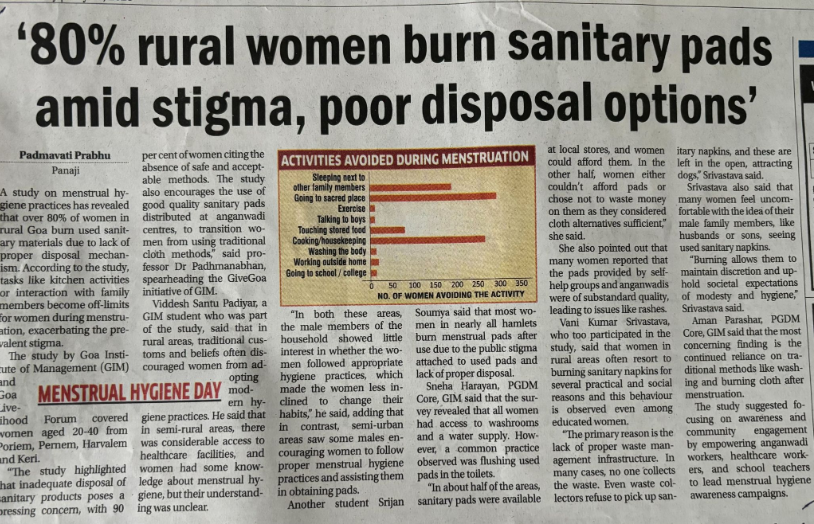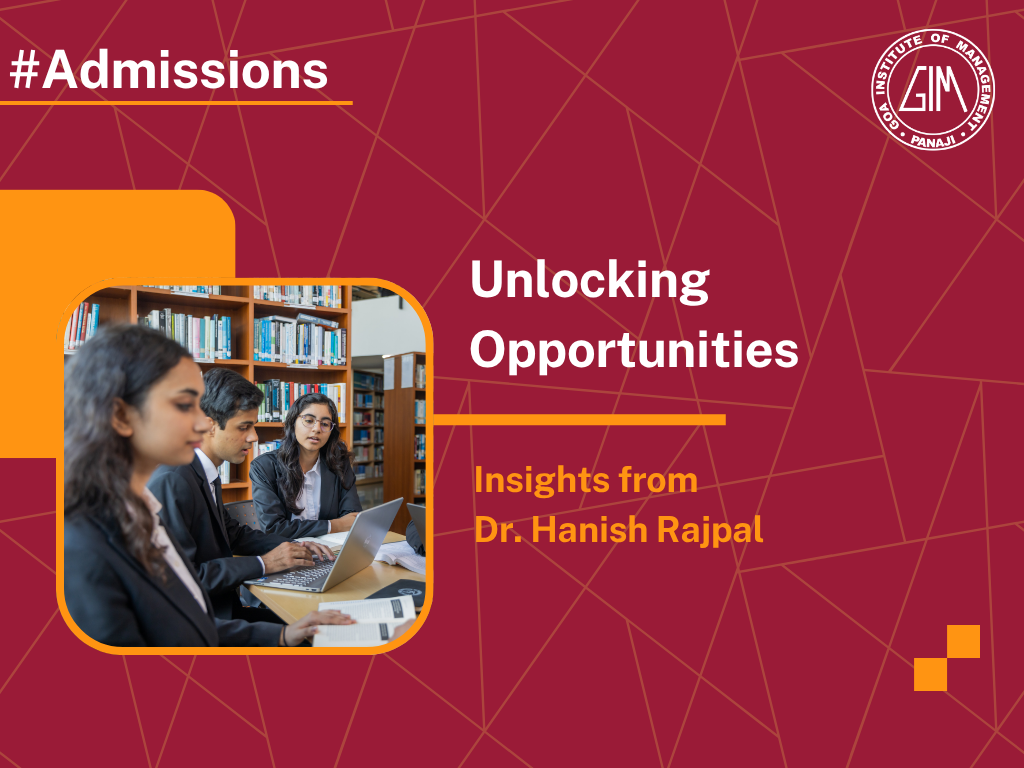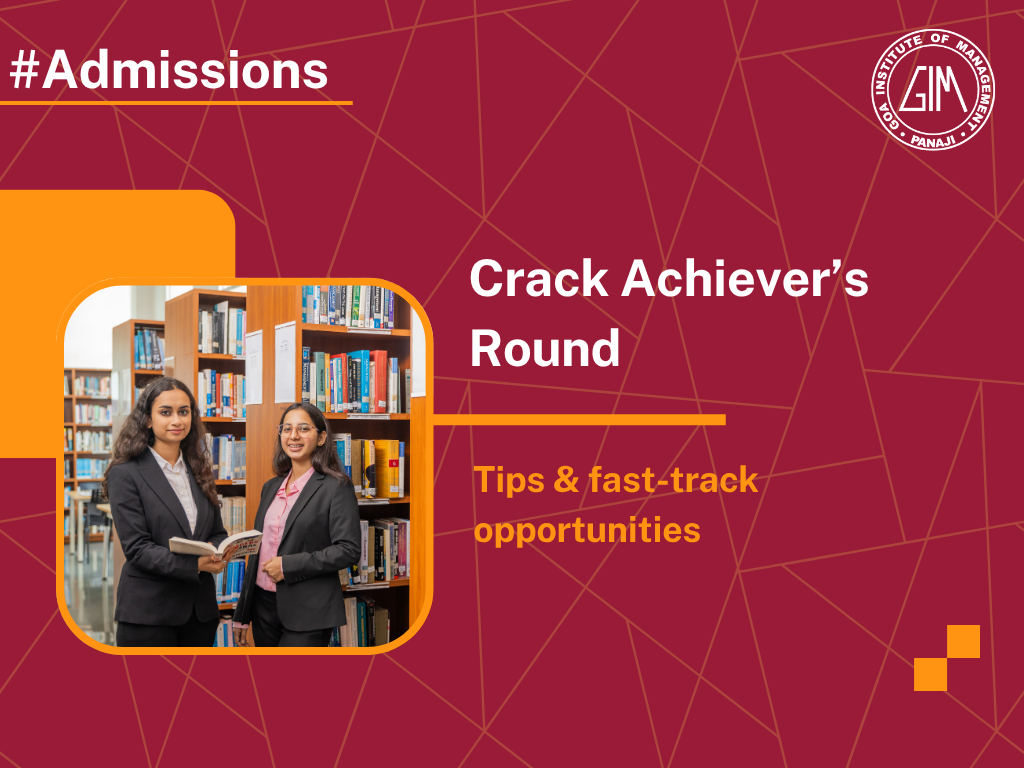Posted by
-
Summer Research Internship Program (SRIP)
-
Summer Internship Program
-
SLRI
-
SEE Learning
-
QS Rankings
-
Pre-Placement Offer (PPO)
-
phd
-
pgdm bda
-
Opportunities
-
nova sbe
-
MDP
-
Marketing
-
IDA
-
Goa Institute of Management
-
GiveGoa
-
GIM Alumni
-
fpm non residential
-
Fpm
-
Executive fpm
-
Event
-
Dual Degree Programmes
-
Dual Country
-
Dr. Hanish Rajpal
-
Doctoral
-
CPPG
-
Convocation
-
Conference
-
Co-LIFE
-
Campus Placement
-
Alumni Success Stories
-
Alumni Reunions
-
Alumni Relations
-
Alumni Office
-
Alumni Impact
-
Alumni Events
-
Alumni Engagement
-
Alumni
-
Admissions
-
achievement
Date
How GIM Students Are Revolutionizing Menstrual Hygiene Awareness
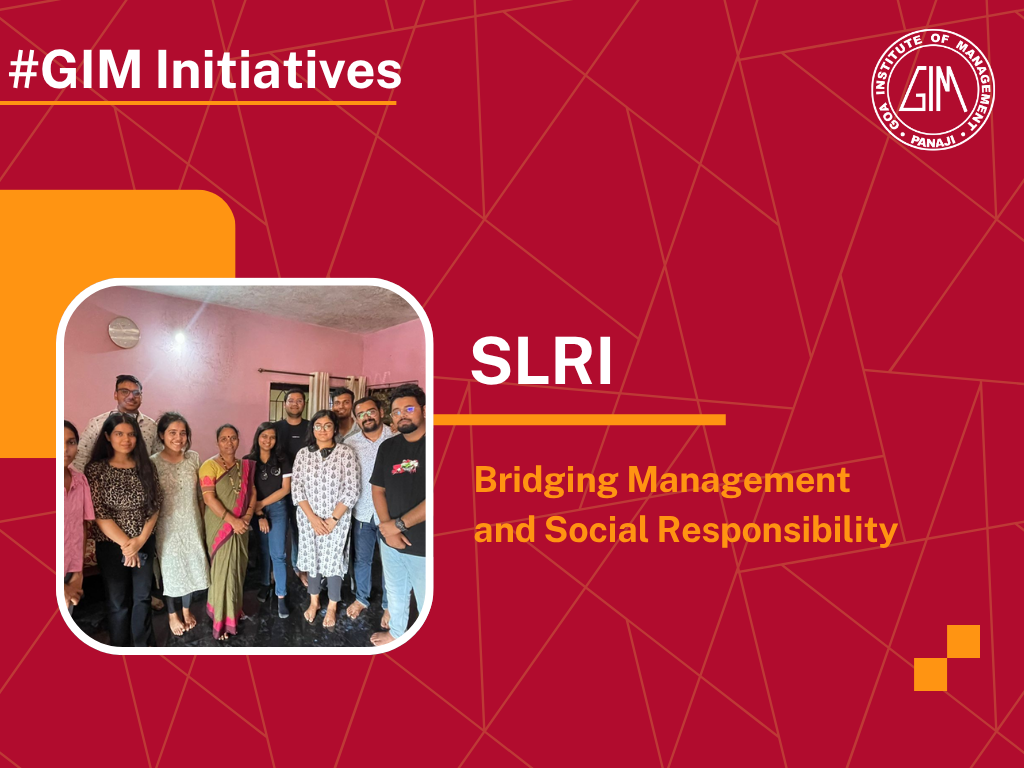
"I never thought anyone would ask me about this."
Those words came from an elderly woman in rural Goa, overwhelmed by the unexpected attention given to an issue she had silently endured for decades—the lack of proper menstrual hygiene awareness and sanitary disposal options.
For millions of women across India, menstruation is still shrouded in stigma, trapping them in outdated practices that compromise their health, dignity, and well-being. Yet, a team of passionate students from Goa Institute of Management (GIM) refused to let this silence persist.

Under the guidance of Professor Padmanabhan, these students—Aman Parashar, Harshit Tiwari, Shivani Pai Angle, Sneha Hayaran, Srishty Nagpal, Viddesh Padiyar, Srijan Saumya, Vani A, Srashti Tyagi, Bhavik Vashisth, Aiswarya M K, Harsh Wardhan Dhaka, and Tarun Kumar—embarked on a transformational community-driven project, immersing themselves in Goa’s rural villages to understand, educate, and drive change. Their mission wasn’t just to collect data but to challenge deep-rooted misconceptions, empower women with modern menstrual hygiene practices, and propose sustainable solutions for safe sanitary disposal.
Understanding the Community: Insights from the Field
As the team undertook the bold initiative, the ground research included over weeks of door-to-door engagement, where they interacted with women aged 15 to 60 years, spanning working professionals, contract laborers, and homemakers. The economic reality was modest—most families had an average monthly income of ₹20,000—but the challenges they faced extended far beyond financial constraints.

From Poriem to Pernem, Harvalem to Querim, the students observed:
-
Deep-rooted stigma:
Many women still hesitated to discuss menstrual hygiene, viewing it as a private or even shameful matter. -
Disposal crisis:
With no formal disposal systems, sanitary napkins were either burned, buried, or discarded in unsafe open spaces. -
Lack of male involvement:
Many women struggled to gain support from their male counterparts, reinforcing societal hesitations. -
Quality issues:
Government-distributed pads were often substandard, discouraging women from adopting modern hygiene practices.
These insights shaped the team’s approach—focusing not just on education but also on advocacy and long-term solutions.
Breaking the Silence: Educating Women, Engaging Communities
- Surveying 30+ women daily across multiple locations.
- Educating 80% of their respondents about menstrual cups and proper disposal methods.
- Empowering young girls to rethink generational taboos.

Proposing Sustainable Solutions
- Government-led awareness drives incorporating local SHGs and Anganwadis to ensure information reaches every household.
- Implementation of disposal solutions like PadCareX, a machine capable of processing thousands of used pads safely.
- Community-based interventions, such as street plays, educational camps, and documentaries, ensuring knowledge transcends literacy barriers.
- Involving men in the conversation, transforming menstrual hygiene into a collective responsibility rather than a gendered issue.
These solutions weren’t theoretical; they were actionable, scalable, and directly informed by community needs.
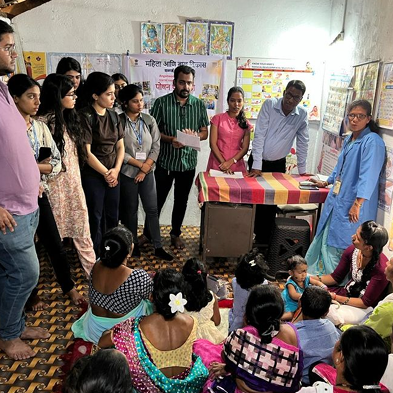
The Larger Picture: Why GIM’s SLRI Initiative Matters
This project is a testament to GIM’s commitment to Service Learning and Rural Immersion. It isn’t just about students gaining field experience—it’s about real-world problem solving, grassroots innovation, and meaningful impact. This initiative is a window into the kind of learning they can expect at GIM—one that goes beyond textbooks and into the heart of community development. Mainly, it highlights how academic institutions like GIM bridge the gap between education and social transformation. Menstrual hygiene isn’t just a women’s issue; it’s a human issue. And GIM is proving that business education can be a force for social good. The work of these students in GIM is a spark—one that can lead to broader institutional collaborations, greater government intervention, and, most importantly, a future where no woman is held back by misinformation or societal barriers.
